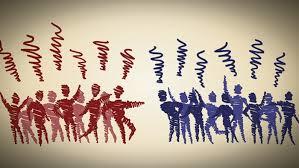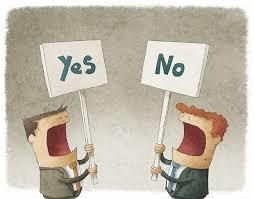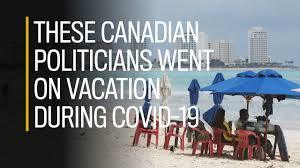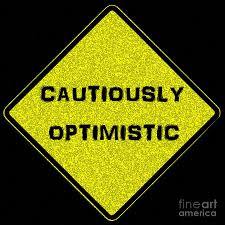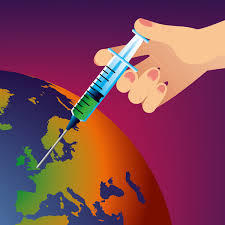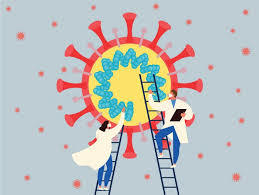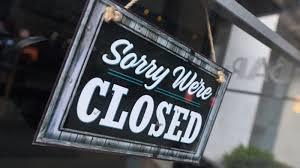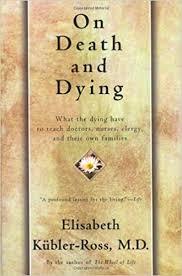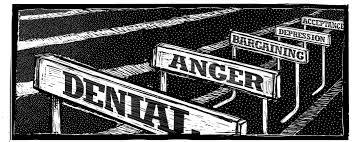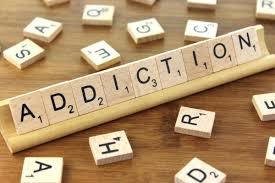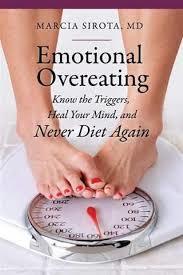Marcia Sirota's Blog, page 15
January 25, 2021
The Pandemic is Showing Us That we Don’t Have a Clue About How to Cope With Stress
I was talking to a radio host the other day. His name is Drew Remenda, and he’s on 650 CKOM out of Saskatchewan. Drew asked me was whether I thought that the pandemic is turning us all into more negative, uncaring people, or if it’s just revealing the darkness lurking deep in our souls.
I told him that I think it’s neither. In my mind, what’s really going on is that the pandemic is showing us how a lot of people just don’t have the tools for coping with a major, life-changing stress.
Covid has challenged us in ways that we couldn’t imagine, and it looks like many of us aren’t quite up to the challenge. It’s not our fault. No-one has taught us the skills necessary to deal with extreme stresses.
Whether it’s because our parents coddled us excessively, leaving us with minimal abilities to fend for ourselves as adults; because our society values instant gratification and fills our minds with the illusion of control, or because life here in the first world has been relatively so easy and predictable that no-one thought to prepare us for what would happen when it stopped being that way.
The four main problems with how people are coping:People struggle with “deferred gratification.” This is the ability to put off having something that we want because we understand that it’s better to wait. For example, when I was in medical school I had to put off any fun, knowing that by buckling down and focusing on my studies, I’d achieve my career goals. I could defer the fun until after graduation, because the long-term gain was worth the short-term pain. Instead of insisting on traveling or gathering with friends and family right now, people should see that they can enjoy these things again, later on, but that right now, they need to work on tolerating the discomfort of not having them immediately.People don’t know how to self-soothe. A lot of people have been turning to comfort food, alcohol and drugs lately, because they don’t know how to face their feelings head-on and then comfort themselves. Instead of taking the time to tune in, recognize their suffering, and engage in some positive self-talk and/or soothing activities, such as taking a bath or going for a walk in nature, they automatically turn to actions that will distract them from their discomfort.People don’t know how to take responsibility for their suffering. Some people are getting angry at others for no good reason. The stress and uncertainty of the pandemic has filled them with fear and insecurity, but rather than recognize how unsafe and exposed they’re feeling, they become impatient and irritable and they start lashing out. They need to see that their anger has nothing to do with anyone else; it’s just a dysfunctional way of dealing with their feelings of vulnerability during the pandemic.People struggle to let go of control. A lot of people are holding on to the idea that they have some type of control in their lives, and the pandemic is making it harder and harder for them to do so, which is then causing them more stress. The truth is that control is an illusion. We can’t control anything, really; not other people, not the environment; not even our own bodies. All we can do is make the best possible choices, and do our very best, and then let go of any illusion about how things are going to work out.Truths that we need to face:Nothing is certain; nothing is guaranteed; pain and loss are inevitable whether we like it or not. As soon as we understand all this, we’re going to be a lot less stressed, whether in regard to the pandemic or around anything else in our life. A mentor I worked with in the past, who was a practicing Buddhist, put it this way: always do your best but don’t be attached to the results.
Coping successfully with the stress of the pandemic is about tolerating the discomfort and the uncertainty of the times; being more patient and able to wait for the things that we want; facing and tolerating our feelings of vulnerability in the midst of loss and uncertainty; and last but not least, being able to let go of our illusions of control.
Being able to do all this is important because if we don’t we’re likely to suffer unnecessarily; to get caught up in impulsive, even self-destructive behaviours; and to have more conflict-ridden relationships. On the other hand, if we cope more successfully, we’ll live happier, more successful lives with a lot less stress and far more rewarding relationships, both during the pandemic and beyond.
There’s a silver lining to the pandemic. It’s giving us an opportunity to fine-tune our coping strategies and to hone the skills that will help us deal with adversity over the entire course of our life. We really have two choices with Covid-19: to have only lemons or to make lemonade.
The pandemic can bring out the best in us or the worst in us. It is our choice to make. We can behave irresponsibly, immaturely and impulsively, or we can be more thoughtful, conscious and deliberate in our actions. I know which choice I’m going to make. How about you?
__
Sign up for my free biweekly wellness newsletter here for my series on Moving into Winter with Good Self-Care, where you’ll learn simple tips for taking the best care of yourself and your loved ones this winter season.
And tune in to my ongoing YouTube video series on Coping With Covid.
January 24, 2021
How the trauma of the pandemic has worsened our addictions
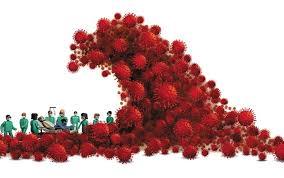 Covid has been traumatic for many:
Covid has been traumatic for many:The Covid-19 pandemic has been with us for nearly a year now, and I have noticed that many people have been traumatized by the pandemic and that their trauma has led to dysfunctional coping strategies.
How is it that I’ve noticed this? I happen to be an expert in trauma. Over the years I have diagnosed and treated hundreds of people with trauma-related conditions, so I feel well-equipped to write this article.
Before I go any further I should define “trauma.” Trauma is an emotional response to severe stress that can also have mental and physical manifestations. A person with trauma can have problems with energy, cognitive abilities, attitude, sleep, appetite, and mood.
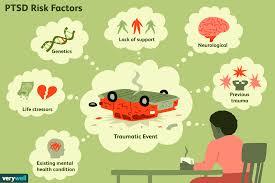 What causes trauma?
What causes trauma?What causes trauma? It can be a life-threatening event like a serious car accident, a house fire, a frightening medical diagnosis, being held up at gunpoint or being a combat soldier. It can come from witnessing a terrible event or experiencing a terrible loss or a series of losses. It can come from physical, emotional or sexual violence, either during childhood or in adulthood. And, it should be noted that traumatic events are cumulative, so the more a person experiences, the more traumatized they could be.
It’s fair to say that due to Covid, many people in Canada and the US are experiencing symptoms of trauma these days. As a psychiatrist, I’m noticing that some people are more impatient or irritable with their family members or co-workers; some are more jumpy or on edge; some are having nightmares and some are spacing out a lot. Some people are withdrawing from their friends and family even more than the social distancing measures would require. Some are feeling apathetic and unable to get motivated, and many people are indulging in too much food, drink or drugs.
If you’re wondering whether you’ve been traumatized by the pandemic, ask yourself three questions:1. Have I experienced one or more severe stresses or losses since the onset of the pandemic? (This could include losing your job or your business; losing one or more loved ones, or having had a serious bout of the virus yourself, especially if you had to be hospitalized or if you have ongoing severe symptoms.)
2. Am I noticing problems with my mood, temper, sleep, energy, enthusiasm, attitude and/or thinking?
3. Am I coping by eating more sweets or comfort foods? Am I drinking more than usual or using drugs?
If you answer “yes” to these questions, then you’re experiencing trauma due to the Covid-19 pandemic. I’ll be offering some tips for how to cope in a healthier way very shortly, but first, I want to talk about what might make someone more susceptible to experiencing trauma due to the pandemic, and what might make someone less susceptible to it.
 Addiction and trauma:
Addiction and trauma:Over the years, I’ve noticed an association between addiction and trauma. In fact, I tend to see trauma as an unconscious and counter-productive coping strategy to trauma. It arises from a more primitive, or simple, part of the psyche and results in our choosing the easiest, quickest way to numb our pain, distract us from it or to artificially boost our mood. Unfortunately, addiction never can help us heal our trauma and it usually makes things worse, both by preventing us from seeking meaningful solutions to our suffering and by creating other problems for us.
Another problem with addiction is that once we start indulging in the addictive behaviour, it stimulates the dopamine-producing part of our brain and the dopamine, in turn, increases our cravings, making us a slave to our addictions. If we want to heal from our trauma, we need to see that engaging in addictive behaviour only makes it worse.
In my book, Emotional Overeating, I show how trauma can lead to addiction of any type, and how to heal from the trauma so that you can be free of your addiction, once and for all.
The people who are most likely to be traumatized by the pandemic are those who:1. Have had one or more traumatic experiences in the past, which makes them more vulnerable today
2. Have experienced multiple or extreme losses during the pandemic
3. Are less aware of their feelings and needs, so they don’t realize when they’re going downhill
4. Turn to “quick and easy” solutions to their problems, so they don’t get the help they really need
The people who are less likely to be traumatized by the pandemic are those who:1. Have no past history of trauma, which makes them less likely to develop trauma from a new stressor
2. Have had a relatively easy time of it with minimal losses and lives that are relatively unchanged
3. Have solid emotional well-being because of a positive childhood and a happy adult life
4. Are more resilient and able to bounce back better by turning life’s lemons into lemonade
5. Have more emotional tools at their disposal – either because they were born with them or because they developed them as adults – which enables them to have excellent coping strategies toward stress
So how do you deal with the trauma you’ve been experiencing due to Covid-19? In part, it depends on how severely you’ve been affected. If you’re really struggling to cope at work; if you’re getting into arguments with your loved ones or completely withdrawing from them, and/or if you’re drinking or drugging to excess, then you need professional help in the form of trauma-based psychotherapy and possibly medications as well.
If you are less severely affected, there are some things that can help you to feel a lot better. You may still want to consider getting some professional help, but all of my suggestions will accelerate your recovery.I have developed a successful technique for dealing with trauma.
 The five steps you’ll need to follow to heal from your trauma:
The five steps you’ll need to follow to heal from your trauma:1. Face your feelings. Take the time to tune in to your feelings. If you notice that you’re much more sad, angry, agitated, anxious, apathetic, unmotivated or irritable lately, you could be suffering from trauma.
2. Grieve your losses. You need to actually grieve – that means cry and mourn – the hurts and losses you’ve been experiencing. This process doesn’t happen overnight. You might need multiple grieving sessions in order to heal your trauma, but that’s okay. Grieving is good for you. Crying releases a huge number of health-giving chemicals and lowers your levels of the stress hormones – cortisol and adrenalin, while it raises the levels of feel-good brain chemicals – the endorphins.
3. Self-soothe appropriately. It’s easy to turn to addictions to self-soothe, but these don’t actually work. The only way to effectively self-soothe is to spend time acknowledging your pain and losses and consoling yourself emotionally. You can also engage in soothing activities such as taking a hot bath, getting a massage; going for a walk in nature, listening to or playing music, quiet yoga, journaling or doing art.
4. Work hard at getting better. Trauma can be very debilitating and in order to heal, you’re going to have to put some real effort into it. You’ll need to push yourself to do positive things that are perhaps difficult but rewarding, such as regular exercise, a regular creative practice, engaging in constructive hobbies or practicing meditation. Also, you’ll need to discipline yourself to avoid negative behaviours like overindulging in mindless pastimes and/or addictive substances.
5. Let go of your pain. This can take a long time, but ultimately, you want to get on the other side of your losses and stop seeing yourself as a trauma victim but rather, as someone who had an experience of trauma. You do this by repeating steps one to four as many times as necessary.
Trauma is an expected response to severe stress, and the Covid-19 pandemic is for many of us, about as stressful as can be. Please take care of yourself, both physically and emotionally, so that you can ride out the end of this pandemic in a good a shape as possible.
—
Sign up for my free biweekly wellness newsletter here for my series on Moving into Winter with Good Self-Care, where you’ll learn simple tips for taking the best care of yourself and your loved ones this winter season.
And tune in to my ongoing YouTube video series on Coping With Covid.
January 7, 2021
How Today’s Politics Negatively Affect our Mental Health
January 6, 2021 – a day that will live on in infamy:
I’m writing this article on January 7, 2021. Yesterday, I was riveted to the TV set, witnessing the insurrection and its aftermath at the US Capitol. It was deeply troubling to watch.
It got me thinking about the recent article I wrote on how the politics of division are driving people crazy and in light of yesterday’s events, I thought I’d add an update about how politics in general are having a negative impact on our overall mental health.
Politics can make us anxious, angry and depressed:
When we talk about mental health, there are three common ways that people can be adversely affected: we can become anxious, angry or depressed. Sadly, politics can affect us in all three ways.
I have to start by addressing yesterday’s incidents at the Capitol. The storming of the building by an angry, extremist mob; the invasion of the chambers where elected officials were trying to do their jobs – noted afterward by many Senators as a “defilement” of their “sacred space” – that was enough to terrify even the most stoic of us.
It was horrifying to see the scenes of chaos unfolding in the Capitol and on the surrounding streets. Even though I’m a Canadian, the US is our most important ally and trading partner, and the implications of these events weren’t lost on me or on my fellow Canadians.
This type of event, in which a seated president incites a group of extremist, fed by his unending lies, to storm the Capitol building, wreaking havoc on democracy– well, it’s enormously anxiety-provoking.
People become stressed when things are unstable:
People crave stability and order. We feel most comfortable when the rules are followed. Chaos is frightening. We feel overwhelmed and out of control. Events like yesterday’s insurrection are deeply disturbing. I imagine that Americans everywhere awoke this morning feeling several degrees more anxious than they did the day before.
People worry that after this insurrection has taken place, there might be other events like it. Already, there was a botched attempt by domestic terrorists to kidnap the Michigan governor, Gretchen Whitmer, three months ago. We wonder, “What’s next?” as this political chaos stirs up our deepest, darkest fears.
Here in Canada, politicians across the spectrum have enraged regular citizens when stories of their holiday travels came to light. People were infuriated to learn that more than 20 elected officials and aides vacationed in Hawaii, Mexico, California and St. Bart’s, when ordinary citizens were obediently observing the public health guidelines.
Over-entitled, hypocritical politicians make us furious:
It’s the narcissistic entitlement of these politicians that caused most Canadians to be so outraged. While the rest of us were tolerating a lonely holiday season at home, deprived of the company of friends and family, these self-centered individuals saw themselves as above the rules. Plus, the hypocrisy really got to us. We had no tolerance for “Do as I say, not as I do,” especially when one of the culprits happened to be a member of Ontario’s Covid-19 science advisory board.
In Alberta, Premier Jason Kenney initially wasn’t going to sanction any of his politicians, but the public outrage was so great that he changed his mind and asked for the resignation of some politicians, with others receiving a demotion.
Hostile political discourse creates alienation and depression in the population:
Both in Canada and the United States, the discourse among politicians has dropped to an all-time low. People are unbelievably rude and hostile to one-another in chambers with crude insults hurled as a matter of course. Last night, as I watched the US confirmation speeches, I noted how many Senators were asking for the temperature to be lowered and the discourse to become more civil.
For those of us who’ve observed these brutal exchanges between our elected officials, it feels like a child watching Mommy and Daddy abusing one-other. These are our leaders – our parent-figures, in a sense – and seeing them treat each-other with such contempt makes us feel overwhelmed, helpless, hopeless, and alienated: it makes us depressed.
I do hope that politicians north and south of the border will heed the call for a more civil discourse, but I’m not sure if it will happen, at least not yet. The divisions are so deep between the right and the left. In the US, left-leaning Democrats are facing off against their centrist colleagues, and far-right Republicans are engaged in a war of words with the more moderate representatives.
In Canada, the insults being hurled at politicians on the floor of the senate or in the House of Commons are more akin to what one would hear in a seedy dive, not in the exalted halls of the legislature, and yet, to date, nothing has been done to stop this awfulness. Citizens of Canada and the US watch in horror, wanting to pull the duvet covers over our collective heads. It’s all too much to bear.
The Covid-19 pandemic has pushed many of us to the edge. The pandemic alone is severely compromising our mental well-being. The last thing we need is more ugly politics to add to the sorry mix. Unfortunately, with recent events, we’re hit with a double-whammy.
All I can say is take care of yourself, minimize the amount of time you spend consuming the news, and let your voice be heard when it’s time to speak up and especially, when it’s time to vote.
We get sad, mad and scared when we feel powerless:
Anxiety, anger and depression often are linked to a sense of disempowerment, so it’s important to take action whenever we can. The voices raised in anger resulted in the firing and demotion of several politicians across Canada. Voices raised in protest elected two democratic Senators in Georgia yesterday. Peoples’ voices were heard loud and clear when they voted in record numbers in November 2020 to elect Joe Biden and Kamala Harris as the new president and vice president of the US.
If we take action – appropriately and legally – as opposed to the treacherous, treasonous behavior of the rioters yesterday in the US Capitol, we can make profound changes in the political system, and just as importantly, we can go a long way toward protecting and nurturing our mental well-being.
——
Sign up for my free biweekly wellness newsletter here for my series on Moving into Winter with Good Self-Care, where you’ll learn simple tips for taking the best care of yourself and your loved ones this winter season.
And tune in to my ongoing YouTube video series on Coping With Covid.
December 31, 2020
Substance Over Superficial Resolutions for 2021
Good riddance to 2020:
The past year has been brutal for everyone. We’ve seen a global pandemic; a financial crisis that rivaled the Great Depression of the 1920s; a mental health crisis brought about by poverty, loss and isolation; mounting racial strife, political polarization, and too many people dying from Covid-19.
In dark times such as these, we have a greater opportunity to recognize what really matters. It’s not accumulating more fame, influence or money. It’s not having more followers on social media or flashier possessions.
When all around us there is so much pain and suffering, we’re reminded of the value of kindness, caring and meaningful connections. We’re reminded that people matter more than possessions and living our best lives is more important than impressing others.
When we’re thinking of making resolutions for 2021, we need a new perspective – one that takes into account the crazy year we all just lived through.
Here is my list of 21 New Year’s Resolutions for 2021:
1. Care less about other people’s opinions – life is not a popularity contest!
2. Be more skeptical – stop being taken in by con artists and liars
3. Be more discerning – learn to differentiate belief and opinion from the truth
4. Be more fact-based – stop trusting information that’s not backed by facts
5. Be more authentic – be honest with yourself and others
6. Find something you believe in – and stand by it without regret
7. Live your best life now – don’t wait for the perfect circumstances
8. Stop settling for less – you deserve better quality relationships and activities
9. Stop being so nice – stop wasting time on being a people pleaser
10. Be kind, to others and to yourself – there’s tremendous power in compassion
11. Be meaningful, not materialistic – more stuff creates mental and physical clutter
12. Do more good – leave the world a better place than when you entered
13. Take more risks – discover what you’re truly capable of achieving
14. Stop tolerating bad relationships – know that you deserve the best in love
15. Speak out more – if something bothers you, let others know. Your voice matters
16.Find your passion and pursue it – life is too short to waste on mindless pursuits
17. Pick your fights carefully – don’t waste energy arguing with unreasonable people
18. Form lasting friendships – choose people who share your values and interests
19. Love your body – focus less on your shape and more on your health
20. Take time to tune in – prioritize rest, recharging and personal growth
21. Practice gratitude – appreciate all that you have and stop comparing yourself to others
A better year for us all:
Even if you can accomplish just a few of the above resolutions, you’ll be well on your way to creating a richer, more joyous, and more adventurous New Year! Stay safe, stay smart, keep your heart open and your mind sharp.Happy New Year to you and yours.
——
Sign up for my free biweekly wellness newsletter here for my series on Moving into Winter with Good Self-Care, where you’ll learn simple tips for taking the best care of yourself and your loved ones this winter season.
And tune in to my ongoing YouTube video series on Coping With Covid.
December 26, 2020
Five Reasons to be Hopeful in 2021
2020: Our “annus horribilis”
Everyone can agree that 2020 has been a brutal year. For many months now, we’ve had little reason for optimism. Bad news followed more bad news and we’ve felt helpless, frightened, and out of control. But thanks to science, it now looks like there’s a light at the end of the tunnel.
It was almost impossible to be hopeful in 2020 with people losing loved ones, businesses being shuttered, and images everywhere of massive line-ups for donations of food. And just as tragic, in 2020, loneliness and isolation became the “new normal.”
Fortunately, the scientists working so hard on developing a vaccine to Covid-19 have prevailed in record time and the roll-out has begun. We’re not out of the woods yet, but we have our first glimpse of better days ahead.
As this very difficult year rolls to a close, here are my five reasons to be hopeful in 2021:
1. Two vaccines against Covid-19 are approved and being deployed right now while two more are coming soon. High-risk populations will be protected and the death rate will drop. The hospitals will begin to empty out and beds will become available for all the other patients who need care. Enormous pressure will be lifted from our health-care systems and from our exhausted, heroic health care workers.
2. With a return to normalcy brought about by mass immunization, people’s mental health will begin to improve. The rate of addictions – which has been frighteningly high recently – will likely decrease. The overall level of stress will go down, and many of us will feel both joy and relief after coming through such a dark time.
3. Science is once again at the forefront in the US, and trust in science will give everyone more confidence that solutions to the difficult problems facing us are indeed, available. Scientific research will offer us a greater sense of security and optimism after a time in which we’ve all felt so adrift. In fact, the work done on the Covid-19 vaccine has been leading to innovations in the treatment of cancer, Alzheimer’s and Parkinson’s Disease.
4. With more of the population being immunized and a lessening need for lockdowns, businesses can start to re-open and the economy can start to recover. Children can get back to in-person schooling and people everywhere can get back to work, provide for themselves and their families again, and contribute to the greater good of society.
5. After so many months of being isolated at home and crossing the street when someone else is approaching, we can finally start coming together with family, friends and colleagues. We can pass our neighbors in the street without fear; we can go back to hugging one-other, to holding hands, to giving friendly handshakes. We’ll all start feeling a lot less lonely when once again we can offer each other face-to-face comfort, warmth and support.
Infections are still rising:
Of course, the numbers are still high everywhere and here in Ontario we’ve just moved into a province-wide lockdown in another attempt to flatten the curve. It’s a very concerning time with more people than ever getting sick and dying of Covid. Close friends of mine all tested positive for the virus last week when one of their children contracted it at school. Fortunately, everyone is doing okay, but it was scary few days for all of us.
Not everyone has been so lucky and each day, the province announces the death toll from Covid-19. These are people’s parents, grand-parents, siblings, friends and children. Each one of them was valuable; each one was loved; each one was living a meaningful life cut short by this deadly disease.
We have a lot to be hopeful about but only if we stay safe and stay smart. We can’t let our guard down; we can’t become lax in the home stretch. It won’t be long until better days are here, but in the meantime, we need to follow the public health guidelines so that we all can celebrate when the good times finally arrive.
A time to be cautiously optimistic:
I’m looking forward to 2021, but I’m not forgetting what’s happening around me right now. Call me hopeful but careful; call me cautiously optimistic. Things are bad, but they’re going to get better. And if we continue to wear masks, wash our hands, and practice social distancing, the horrors of 2020 will soon be behind us and a much better life is just ahead.
Sign up here for my free biweekly wellness newsletter for my series on Moving into Winter with Good Self-Care, where you’ll learn simple tips for taking the best care of yourself and your loved ones this winter season.
And tune in to my ongoing YouTube video series on Coping With Covid.
December 20, 2020
The Light at the End of the Tunnel
May you live in interesting times:
There’s an old curse that goes, “May you live in interesting times,” and looking back, I don’t think 2020 could have been any more “interesting.”
With the arrival of a global pandemic, the return of Black Lives Matter to international attention, as well as the bizarre goings-on following the US presidential elections, we’ve all been through a lot.
It’s been a year filled with loss. People have lost their jobs, their businesses, their livelihoods and their loved ones. There has been so much pain and suffering, as well as an overwhelming sense of helplessness and uncertainty. We’ve been afraid, confused and lacking a sense of control for much of this year, and on top of which, we’ve never been lonelier.
In the past during crises such as this, we would lean on our loved ones for support but this year, we’ve had to isolate ourselves and deal with everything on our own. For single people living in tiny apartments, it’s been a real ordeal. For those in a relationship, it’s been make-or-break, as some couples have gotten closer through the pandemic and others have broken apart.
Our mental health has been strained to the maximum and this is demonstrated in our mental health workers being completely overloaded with referrals while at the same time, crisis hotlines across North America are ringing off the hook. We’re all in need of some good news.
There’s a light at the end of the tunnel:
Fortunately, there is light at the end of the tunnel. With the approval of the first COVID vaccines and the beginning of mass immunization, there’s glimmer of hope amidst all the bleakness.
It’s been such a rough year that many of us have become somewhat hopeless and cynical, but science has prevailed and finally, we can start planning for brighter days. Even as we revise our holiday plans for this year, we can look to the future and start thinking about celebrating with our loved ones, next year.
It’s no surprise that during a crisis, science and research are what brought us to a solution. We’re all so fortunate to have world-class scientists and researchers here in Canada, the US and around the globe, working diligently on developing treatments and prevention strategies for this deadly pandemic.
For my part, I’ve never been busier. On the other hand, this year has been tremendously rewarding and I’ve had amazing opportunities for deepening my creativity, resourcefulness and compassion. I’ve spent a lot of time being grateful for what I do have, rather than focusing on what I’ve been missing.
With the arrival of the vaccine and a renewed faith in the benefits of science, we can move away from despair and begin to embrace hope. We can plan for brighter days because the end of this ordeal is in sight.
Of course, we must not let our guard down. Sure, we’re deep in the throes of COVID-fatigue but we don’t want to risk our health or the health of our loved ones while we’re in the home stretch. We owe it to ourselves and to our families to stay vigilant and keep following the advice of our public health departments. After all, we want everyone to be there for next year’s brilliant holiday celebrations.
Battered, bruised and bereft, we’ve somehow managed to make it through to the end of this terrible, awful year. That’s already something worth celebrating. With everything we’ve been through, we’re reminded of the value of kindness and the redemptive power of optimism.
A big thank-you to all my followers:
In this holiday season, I want to thank you all for continuing to read the blogs, watch the videos, listen to the podcasts and subscribe to the newsletter. I hope that I’ve been able to offer insights, perspective and most of all, comfort during a truly unprecedented time. Your support uplifts me, inspires me, and keeps me doing what I do.
From my family to yours, I wish everyone a happy, healthy holiday season. Despite the loneliness, the isolation, the loss and the deprivations, we can all remember the love we have for one-another that has been amply demonstrated through remarkable acts of selflessness and altruism. And we can start looking forward to the good times that are surely ahead of us now.
Sign up here for my free biweekly wellness newsletter for my series on Moving into Winter with Good Self-Care, where you’ll learn simple tips for taking the best care of yourself and your loved ones this winter season.
And tune in to my ongoing YouTube video series on Coping With Covid.
December 13, 2020
5 Ways That Giving Boosts Your Spirits During the Holidays
The holiday season is here again and for many of us, the holidays are not just a time for celebration but for giving to others. This year, though, it seems that there will be a whole lot less of both these things. With the social isolation, pervasive feelings of loss, and the massive financial hardship associated with the pandemic, we’ve had to re-imagine the holidays this year.
Giving makes us happier than receiving:
We all have heard – and studies have confirmed – that giving makes us happier than receiving, and that volunteering, giving to charity, and helping people in our community can add real value to our lives. Traditionally during the holidays, giving goes way up and people are at their most loving and generous.
Sadly, with the pandemic raging across the globe, giving is down everywhere. Whether it’s because everyone is tightening their belts or because we’re restricted from going out and volunteering, charities are struggling more than ever with a lack of funding and fewer able bodies to help out.
Of course, there are still amazing acts of kindness being done on a daily basis – in the form of people on bikes delivering food to the needy, or kids making homemade greeting cards for seniors alone in care homes. In general, though, charities are struggling.
Giving is down, this year:
In Canada, two-thirds of all the charitable organizations have seen donations drop by almost one-third, while at the same time, the financial hardships brought about by the pandemic are increasing the level of need.
The good news is that even though giving is down and we may not be in a position to donate as much money as we did in the past, there are still many ways that we can be more giving, this holiday season. We can still give of our time, our energy and our skills.
It can be as simple as the woman who sewed masks to distribute to those who couldn’t afford to purchase them, or the wonderful group of people who are going around collecting unused food from restaurants and are distributing the food to charities. When I see these people on the news, the givers seem as happy as the receivers, and that’s the magic of giving.
This year we have the combined stress of the holidays, plus social isolation, financial stress, loss of control and uncertainty about the future – which is why giving is such a good idea right now. I can think of five things that giving can do for you, this holiday season, and these days, we need every boost we can get.
Here are the five ways that being more giving can boost your spirits during the holiday season:
1. Giving provides you with a sense of community:
When you give of your time, energy or skills to those in need, you feel more connected to these people. Giving boosts your sense of empathy and makes it easier to understand someone else’s lived experiences. Often, when you give to others, you’re doing it with a group of like-minded people, and people who give to others make the best kinds of friends.
2. Giving boosts your self-esteem:
When you do good deed, you feel good about yourself. Being kind and generous goes a long way in silencing your “inner critic” and making you feel like a good person. These days, with so much uncertainty, it doesn’t hurt to feel better about yourself.
3. Giving adds meaning and purpose to your life:
With our world irrevocably changed, and day-to-day life almost unrecognizable, compared to just a year ago, it can be deeply reassuring to have something that provides you with a sense of meaning and purpose. Your life is richer and more satisfying, as a result.
4. Giving takes your attention off your own problems:
When you do for others your focus is turned away from yourself and onto others. In this way, giving to others can ease your stress and offer you a sense of perspective. You’re doing less navel-gazing and connecting more to your sense of compassion for others. It’s a much healthier distraction than overeating, drinking to excess or falling down the rabbit hole of online shopping.
5. Giving gives you a sense of empowerment when you’re feeling helpless and out of control:
It’s so difficult to feel confident and secure these days, when nobody knows when this will all be over, or what life will look like, on the other side. We can feel so helpless and powerless at times, but when we give to others we feel empowered. We know that we’re doing something that makes a real difference in other people’s lives, and this helps create a sense of agency at a time when we’re all floundering a bit.
We have to think outside the box:
So, think outside the box and try to come up with your own way to give, this holiday season. Or look online for inspiration from all the amazing ways that people are finding to give, this season.
Remember, it doesn’t have to be a big, grand gesture. It can be as simple as shoveling your elderly neighbour’s sidewalk or calling up your auntie and saying “hi.” Whatever you choose to do, know that you’re going to be helping both them and you at the same time.
Sign up here for my free bi-weekly wellness newsletter for my series on Moving into Winter with Good Self-Care, where you’ll learn simple tips for taking the best care of yourself and your loved ones this winter season.
And tune in to my ongoing YouTube video series on Coping With Covid.
November 14, 2020
How the 5 Stages of Grief Can Help Small Businesses Get to Plan B
The pandemic has been devastating to small businesses:
It’s November 2020 and as the pandemic rages onward — in some parts of the world spiraling out of control — many small business owners are at their wits’ end, trying to figure out a way to salvage their livelihood. The people who work for small businesses are equally desperate, wondering from day to day if they’re going to have a job or if they do have a job, whether or not they’re going to get paid.
Here in Ontario, it’s looking like we’re heading for another lock-down, which means that things will only get worse for those business owners and their staff who work in restaurants, spas, boutique hotels and small shops. Everyone in small business is under so much pressure these days and they’re feeling an acute sense of loss.
We’re going through the 5 stages of grief:
It’s got me thinking about loss and grief in general, and how it’s likely that many people these days are unknowingly going through the five stages of grief. These stages are the typical emotional responses we have to painful loss. They were identified by Dr. Elizabeth Kubler Ross in her 1969 book, On Death and Dying.
The five stages of grief are:
Denial
Anger
Bargaining
Depression
Acceptance
We feel a sense of impending doom:
In this time of Covid with all the losses small business people are experiencing, it’s not surprising that owners and workers are feeling a sense of impending doom, as though a kind of death were approaching. It can almost be compared to the sense that someone has when they receive a cancer diagnosis, when they feel the sword of Damocles hanging over their head.
They go through denial, insisting that the doctor got the diagnosis wrong; then anger at the unfairness of their diagnosis; then bargaining with God that if they become a better person, perhaps they can be spared; and then they fall into a depression, feeling a sense of helplessness and hopelessness, ultimately arriving at an acceptance of their diagnosis and hopefully, then, being able to take whatever measures are needed to successfully fight the disease.
Working through the 5 stages can get us to Plan B:
I was thinking that the livelihood-threatening experience of the pandemic is so similar to the experience of a life-threatening diagnosis that it might be possible to consciously use these stages of grief to work through our emotions, so that we can get to a place of clarity which could then help us to consider a viable Plan B.
If we contemplate the five stages of grief and our reactions as small business people to the pandemic, we can see how many of us have been moving through these stages without even realizing it.
Right now, it’s exceedingly difficult for most of us to get to Plan B and I think that, in part, it could be because many of us are still in the anger stage (and probably a few are in bargaining, or depression). We won’t be able to arrive at a viable Plan B for our small businesses until we move past the anger, etc. and get to a place of acceptance.
How the 5 stages of grief can help small businesses get to Plan B:
Stage one: This was our reaction to the first lockdown, when we felt the shock and the pain of our businesses being shuttered and no money coming in while there were still loads of bills to be paid. Many of us went into denial at this time, convincing ourselves that this was a temporary glitch and that it would soon be over. This denial was reinforced by the re-opening in the spring and summer when we convinced ourselves that everything was going back to normal and would surely stay that way.
Stage two: This was our anger when the fall arrived, the numbers started going up and restrictions returned. We got even angrier when another lockdown was threatened. We hated that things were not back to normal. We got frustrated, and then we got furious.
Stage three: This is the bargaining stage. We haven’t all gotten there quite yet but it’s the inevitable next step. I predict that small business people will be spending a good part of the winter bargaining with their landlords; the government; their lawyers; the banks – anyone they can think of – to see if they can salvage their businesses and their jobs, most likely with varying degrees of success.
Stage four: For many, following this stage of bargaining will be the stage of depression. Winter will have arrived and the numbers of cases will have sky-rocketed. Small businesses will be even harder hit, and it’s likely that this is the point at which many owners and staff could sink into despair.
Stage five: As the winter fades and spring arrives and everyone has a clearer picture of how the pandemic is evolving, small business people can emerge from their winter depression by surrendering to a state of acceptance. They can acknowledge the painful reality of Covid-19 and in facing the truth they’ll be empowered to brainstorm reality-based solutions.
Problem-solving is only possible when we face reality:
It’s impossible to problem-solve effectively when we’re in denial, when we’re angry, when we’re bargaining or when we’re depressed. The only way to make effective decisions on how to proceed with our small business is to be fully in acceptance of the reality that we’re living in. And that’s why working through each of these phases of grief can make getting to Plan B possible.
Plan B could be the decision to abandon our business and envision a new role for ourselves, or it could be a revised version of continuing onward. We can’t know what we’ll decide, though, until we get to the stage of acceptance because it’s only when we’re grounded in reality, both emotionally and intellectually, that we can make the choices that work best for us moving forward.
As a psychotherapist in practice for many years, I’ve learned that facing the truth about our situation is the first step in all healing and growth. When small business people work their way through the five stages of grief and arrive at a place of acceptance, that’s the point when they’ll be in the best possible position to brainstorm creative and viable solutions.
— Sign up here for my free bi-weekly wellness newsletter for my series on Moving into Autumn with Good Self-Care, where you’ll learn simple tips for taking the best care of yourself and your loved ones this fall season.
— And tune in to my ongoing YouTube video series on Coping With Covid.
November 8, 2020
Why We Desperately Need Good Father-Figures Right Now
We need good father figures:
After days of suspense, the results are finally in for the recent US election, with Joe Biden being declared the winner. I found it particularly interesting that both candidates happened to be men in their seventies, and that got me thinking about the differences between a good father-figure and a bad one.
In differentiating a good father-figure from a bad one I’ll start by explaining what makes a bad father-figure. And it should be noted that these characteristics apply to father-figures in politics, in business and in families. So when I use the word “children” in this article, it can be interchanged with “employees” or “citizens.”
Five characteristics of bad father-figures:
1. Bad father-figures always put their own needs first. Bad father-figures care about themselves more than they care about others and therefore, their need for love and approval is greater than their sense of responsibility toward others. They always do what’s in their own best interest as opposed to doing what’s best for their children.
An example of this was Mr. Trump holding crowded, mask-less rallies in which hundreds of his followers showered him with adoration, all the while risking their own health and safety. His priority was soaking in the love, as opposed to keeping his followers safe.
2. Bad father-figures tell their children what they want to hear, as opposed to the truth. They don’t want to make their children upset with them and risk their popularity so they’ll pander to their children in order to maintain their beloved status.
An example of this is Mr. Trump minimizing the importance of masks and social distancing in general. He knew that many of his followers don’t like these ideas so he went along, knowing that his followers would be at much greater risk of contracting Covid, becoming ill and even dying, as a result. The fact that over thirty thousand attendees of his rallies contracted Covid and over 700 have died so far indicates that he would do anything, including risking the lives of his followers, in order to maintain his popularity.
3. Bad father-figures give their children what they want, as opposed to what they need. A bad father-figure will indulge their children’s worst habits if that will keep them in their children’s good graces.
An example of this is a father who literally gets “brownie points” by allowing his children to eat junk food for dinner when the children need to eat nourishing food. In business, it’s a supervisor who allows staff members to come in late and take extra-long lunches, thereby decreasing staff morale and productivity, but maintaining the supervisor’s popularity. It’s a father who allows his 14 year-old daughter to date a 19-year old man. She thinks he’s a “cool dad” but in truth, he’s abandoning his child.
4. Bad father-figures bring out the worst in their children. A bad father-figure is intolerant of dissent so if he perceives one child as disobedient because she isn’t going along with everything he says, the bad father-figure will pit the more obedient children against her. He will choose favorites and spoil them while criticizing, threatening and punishing the children who refuse to fall into line.
An example of this is when Mr. Trump encouraged white supremacists to “liberate Michigan” because he was angry at its governor, Gretchen Whitmer for her Covid-19 restrictions, and soon after, a plot to kidnap this governor was discovered and thwarted.
5. Bad father-figures abandon all their children. Despite all their empty promises, bad father-figures are only ever thinking about themselves and even those who love and support them don’t get what they need.
An example of this is how the American economy, America’s standing in the world, and the security of the US are at an all-time low since Mr. Trump has been president. Those who voted for Mr. Trump are not getting the benefits they envisioned from having elected him president.
A bad father figure spoils his children, punishes them and abandons them. What he doesn’t do is listen to them, take good care of them, or protect them. From the characteristics of a bad father-figure, it’s easy to see what a good father-figure does.
Five characteristics of good father-figures:
1. A good father-figure makes sacrifices for his children. He always puts his children first. He cares more about his children than he does about his own gratification. He will work long hours and give up what he needs in order to make sure that his children are getting their needs met.
An example of this is Joe Biden who, when he could be enjoying quality time with his family, has stepped up to lead the country despite great personal cost.
2. A good father-figure responds to his children’s needs. With empathy and kindness, he listens carefully to what his children are asking for and then he takes direct action on their behalf. Sometimes, he has to say “no” if what his children want is not in their best interest, and he’s willing to risk his popularity to do what is best for them, not what makes him look good.
An example of this is Joe Biden who says that we have to listen to science and scientists if we want to beat the pandemic. He knows that a lot of people don’t want to hear this and will be mad at him, but he’s giving the people what they need, as opposed to what they want.
3. A good father-figure nurtures and unites his children. He’s there for them even when they disobey or disagree. He doesn’t favour some of his children over others and he tries to bring his children together rather than divide them.
An example of this is Joe Biden who, in his acceptance speech as President-elect, said that he intends to be a president for all Americans, not just for those who voted for him. He intends to unite the country, seeing it not as red states or blue states but as United States.
4. A good father-figure protects his children. He creates the circumstances that ensure the safety and welfare of all his children. He fiercely defends his children, even if they’re angry at him or saying bad things about him.
An example of this is a politician like Joe Biden who will raise the standing of his country in the world, forge strong alliances and work for peace and prosperity, thereby ensuring the safety and security of the nation.
5. A good father-figure tells his children the truth. With compassion and clarity — otherwise known as Ruthless Compassion — he tells it like it is so that his children are well-informed and possessed of the facts. He prioritizes honest conversations that empower his children and enable them to make the best decisions for themselves and those around them.
An example of this is Joe Biden encouraging the scientists to share the facts about Covid with the country because even though it might be painful to face the truth about the pandemic, it is what will help the people stay safe and ultimately, return to normal life.
Understanding the differences between a good father-figure and a bad one can help us see why it’s so important that our bosses, Dads and politicians try to be the best possible father-figures.
— Sign up here for my free bi-weekly wellness newsletter for my series on Moving into Autumn with Good Self-Care, where you’ll learn simple tips for taking the best care of yourself and your loved ones this fall season.
— And tune in to my ongoing YouTube video series on Coping With Covid.
October 25, 2020
Is Loneliness Driving You to Addiction? My Two Simple Strategies
Covid restrictions lead to addictions:
Reports have come out lately about the rising rates of addiction since the Covid-19 pandemic began, and it’s no surprise. As people are struggling with uncertainty and loss and they’re feeling out of control in their lives, it’s understandable that they’re turning to comfort food, alcohol and drugs in order to cope.
It’s especially difficult these days because along with the fear of becoming ill, the fear of our loved ones becoming ill, the financial strain, the job stress and the grief over what – and who – we’ve lost, we’re more lonely and isolated than ever.
The best way we cope with stress is by surrounding ourselves with people who care. Within our family, our circle of friends and our community we find the support that gets us through the toughest times. But when the Covid-19 restrictions are depriving us of this healthy way of coping, inevitably, we’re turning to less constructive solutions.
Phone calls and video chats are better than nothing but they’re not the same as face-to-face meetings. In part, it’s because there’s no possibility of touch, and touch provides us with a powerful sense of intimacy and comfort. A warm hug, a gentle hand on a shoulder, a soothing caress – all of these are missing from our “new normal.”
People are starved for touch:
Since the pandemic began, many of us have been experiencing touch deprivation. We’re missing out on the emotional and mental health benefits that gentle touch can bring.
But even aside from the lack of touch, people are more lonely and isolated than ever. Loneliness was becoming a serious problem even before the pandemic began and now, with the social restrictions, it’s become even worse. Virtual contact might help a bit but it doesn’t put a meaningful dent in the profound loneliness that people are feeling.
We need to hang out with our friends, play team sports, have people over for brunch or dinner; we need to visit people in their homes for games nights or holiday get-togethers, and none of these social activities are advisable right now.
We need to be in the presence of those who care – and it’s the one thing we can’t have. So, given that our most important source of emotional support is currently restricted, it’s not surprising that we’re defaulting to addiction.
Even people who live with a partner or children are lonely. Our immediate family might be wonderful but it can’t give us all the emotional support we need. We crave contact with our extended family and our circle of friends.
What do we do, then, when we’re lonely but we can’t be with our loved ones? We have to find other ways to cope.
Here are my two simple strategies for dealing with loneliness during the pandemic:
1. Deferred gratification:
Deferred gratification is the ability to put off our pleasure-seeking or comfort-seeking behaviour for later. It’s the ability to wait for what we want rather than indulging ourselves in the moment.
Deferred gratification is a high-level coping strategy that’s used by the most successful people in our society. I used it a lot during medical school. I’d study intensely for an exam and then afterwards, I’d reward myself with something nice. That’s how I was able to get through those grueling four years.
Successful CEO’s, professionals, and entrepreneurs understand about deferred gratification. They know that they have to make sacrifices today for a pay-off tomorrow.
Covid-19 is an unprecedented situation but for those of us familiar with deferred gratification, it’s also an opportunity to practice this skill. We understand that we have to hunker down and give up what we want in the moment in order to successfully navigate the pandemic right through to the end.
With deferred gratification, we can see the big picture and recognize that there will be other family gatherings, other sports games, other dinner parties down the road, but for right now the most important thing is to keep ourselves, our loved ones and our communities safe, so that our cities can reopen and our economies can start up again.
Deferred gratification is not the same as abstinence. Abstinence is about forever giving up the thing we want; deferred gratification is about waiting for the right time and the right circumstances in which to finally have what we want.
2. Successful self-soothing:
My other strategy for coping with the loneliness of the Covid-19 restrictions is successful self-soothing. Instead of numbing ourselves through over-eating, drinking, or using drugs – what I call “unsuccessful self-soothing” – we can compassionately recognize our feelings of hurt and loss and give ourselves the real emotional comfort we need right now.
In my book, Emotional Overeating, I go through the four simple steps to successfully self-soothe in order to feel better and break free from overeating or any other addiction.
Whether you’ve been fighting off your urges or giving in to them, this book will help you deal head-on with the needs and feelings underlying your cravings so that you can beat the urges, once and for all.
In the book, I demonstrate how addiction creates a vicious circle of craving and using: when we over-eat, drink to excess, or use illicit drugs, these substances cause the release of the brain chemical, dopamine. Dopamine gives us an instant rush of euphoria but it also increases our cravings.
The more we use, the more we crave, until we become trapped in the vicious circle of addiction. That’s one reason why stopping a substance cold-turkey can be helpful in overcoming addiction.
But we can’t stop eating so with food addiction, abstinence isn’t the solution. We have to deal with our deeper feelings and needs. To overcome over-eating, we have to learn how to self-soothe successfully.
Loneliness is painful and bad for your mental health. Deferred gratification and self-soothing are two simple strategies that can help you get through the Covid-19 restrictions without succumbing to addiction.
Sign up here for my free bi-weekly wellness newsletter. I’m doing a special every-two-week series on Moving into Autumn with Good Self-Care, where you’ll learn simple tips for taking the best care of yourself and your loved ones this fall season.
And tune in to my ongoing YouTube video series on Coping With Covid.
Marcia Sirota's Blog
- Marcia Sirota's profile
- 1 follower







